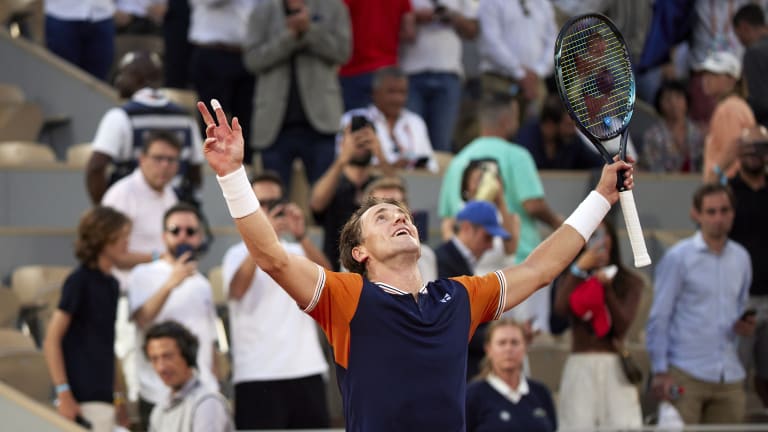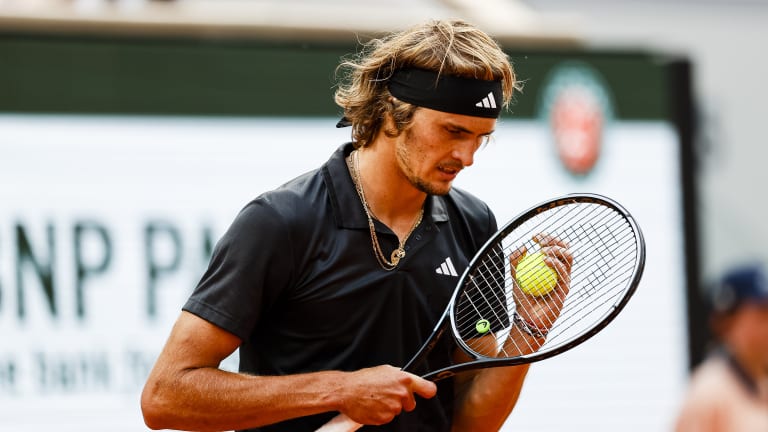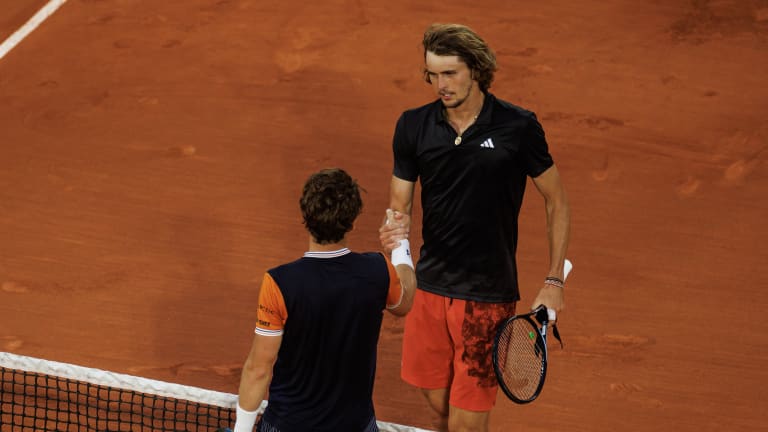Roland Garros
For second straight year, Casper Ruud moves into Roland Garros final
By Jun 09, 2023Roland Garros
Was the Carlos Alcaraz-Jannik Sinner Roland Garros match the best ever played?
By Jun 13, 2025Roland Garros
Who were the winners and losers at 2025 Roland Garros?
By Jun 09, 2025Roland Garros
Carlos Alcaraz and Jannik Sinner played the match of the decade, and maybe the century, at Roland Garros
By Jun 09, 2025Roland Garros
PHOTOS: Carlos Alcaraz captivates Chatrier with trademark joy after improbable Roland Garros title defense
By Jun 09, 2025Roland Garros
Carlos Alcaraz saves three match points, tops Jannik Sinner in longest Roland Garros final of Open Era
By Jun 08, 2025Roland Garros
Aryna Sabalenka clarifies controversial Coco Gauff claim: "Can't pretend it was a great day"
By Jun 08, 2025Roland Garros
Coco Gauff counters Aryna Sabalenka's Roland Garros claim by saying she 'wanted' Iga Swiatek in final
By Jun 08, 2025Roland Garros
2025 Roland Garros men's final preview: Carlos Alcaraz vs. Jannik Sinner
By Jun 07, 2025Roland Garros
PHOTOS: Coco Gauff celebrates Roland Garros title with parents, toasts champagne at Tennis Channel set
By Jun 07, 2025For second straight year, Casper Ruud moves into Roland Garros final
In two hours and nine minutes of airtight tennis, the 24-year-old Norwegian defeated a resurgent Alexander Zverev, 6-3, 6-4, 6-0.
Published Jun 09, 2023
Advertising
Advertising

Last year in Paris, Ruud reached his first Grand Slam singles final. Now he’ll play at a major’s last Sunday for a third time.
© Getty Images
Advertising

“I'm happy that I'm back to where I am so soon after the injury,” said Zverev after bowing out of his third Roland Garros semifinal in a row.
© Getty Images
Advertising

Though Zverev had beaten Ruud in two of their three prior matches, never had these two played one another on clay.
© TENNIS PHOTO NETWORK